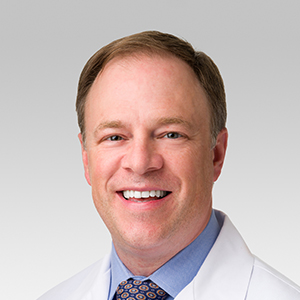Your Guide to Elective Plastic Surgery
A Plastic Surgeon Shares the Facts
Published August 2024
As elective plastic surgery becomes more popular, Northwestern Medicine Plastic Surgeon Michael A. Howard, MD, answers common questions about these types of procedures, which include both reconstructive and cosmetic surgeries.
Is plastic surgery safe?
If you’re considering elective plastic surgery, you should be in good health, and any underlying medical conditions should be discussed with your primary care clinician and plastic surgeon.
The benefits of plastic surgery come at the intersection of function and cosmetics.— Michael A. Howard, MD
You are at risk for serious medical complications from elective plastic surgery if:
- You have major or various underlying medical conditions, such as hypertension or obesity
- You smoke
- You use certain types of medication, which you should discuss with your care team
Safety also encompasses the surgical procedure itself. Any elective plastic surgery should be performed by a well-trained, board-certified plastic surgeon at an accredited facility.
“We frequently see significant complications when patients undergo procedures with untrained practitioners,” says Dr. Howard. “This is common among people doing ‘medical tourism,’ seeking care outside the United States.”
How do I make sure I’m happy with my outcome?
The surgeon and patient must spend time before surgery to determine:
- The patient’s motivation for seeking the surgery
- The patient’s expectation for the outcome
- The surgeon’s and surgery’s ability to achieve the outcome
“When the patient has a realistic expectation for potential surgical results, and the surgical procedure is able to achieve that result, this is a recipe for a successful outcome,” says Dr. Howard.
What do plastic surgery procedures typically entail?
“The process and recovery for elective plastic surgery can vary widely depending on the actual amount of surgery being performed,” says Dr. Howard. “Some procedures may be relatively minor in nature, such as laser skin tightening, and may be performed in an office setting. Others, such as rhinoplasty, or a ‘nose job,’ are more involved and require a surgery center or hospital setting.”
For larger procedures in a surgery center or hospital, you generally will receive some form of anesthesia during the surgery. Once the procedure is complete and you have recovered from anesthesia, you will be discharged home to begin the recovery process. Typically, you will be able to go home the same day of most elective plastic surgery procedures.
How long does it take to recover from plastic surgery?
The recovery process for plastic surgery is gradual, but many patients are able to return to activities of daily living and work within a relatively short period of time, like a few days to a week.
Depending on your procedure, you may have some activity restrictions, such as avoiding lifting or showering for a specified amount of time. Some surgical procedures will require the use of specialized dressings or compression garments to aid in healing and reduce swelling.
If the surgery requires sutures, your surgeon will generally remove them within one or two weeks.
“It is not uncommon for my patients to return after surgery and tell me that the surgery and recovery were much easier than they had expected,” says Dr. Howard. “This has a lot to do with the perioperative system for elective plastic surgery at Northwestern Medicine, where the Anesthesia and Nursing teams work hard to prepare patients for recovery.”
What are the benefits of plastic surgery?
“The benefits of plastic surgery come at the intersection of function and cosmetics,” says Dr. Howard. “Examples of this include breast reduction and abdominoplasty, or the correction of the splitting of the abdominal muscle (diastasis) following pregnancy. These have significant functional improvement as well as simultaneous improvement in the patient’s appearance.”
Plastic surgery can help make a positive impact on your perception of your appearance. As lifespans increase, many people are maintaining healthy and active lifestyles for 20 or more years longer than the previous generation did. As a result, many people want to “look as good as they feel,” adds Dr. Howard.
What are the risks of plastic surgery?
Apart from the medical risks outlined above, Dr. Howard says that many plastic surgery procedures are not easily reversible. If you are uncertain about a procedure, he urges caution. “We never want patients to undergo a procedure that carries risk and cost with potential for complication if there may be regret,” he explains.
What does maintenance look like after plastic surgery?
The most successful plastic surgery procedures require some degree of lifestyle modification or maintenance.
The less-invasive, office-based procedures, like laser skin tightening, usually require some touching up every several years, as it’s impossible to stop the aging process. It’s also important to take care of your skin by cleaning it, hydrating it and using sunscreen regularly after these procedures.
Surgeries involving some form of weight loss or body contouring following weight loss require lifestyle modifications, such as a healthy diet and exercise, to avoid weight gain.
Breast-specific procedures like breast implants require continued preventive breast health screenings, such as mammograms, and periodic evaluation of the implant to check it for potential rupture in the years or decades after surgery.
Dr. Howard adds, “One of the most common myths in plastic surgery is that breast implants need to be replaced every 10 years. This isn’t true. There is no need to replace breast implants due to their age, only if they have ruptured.”
Learn more about plastic surgery.






